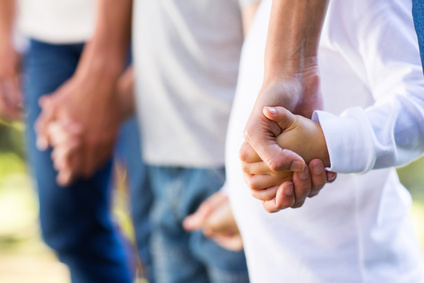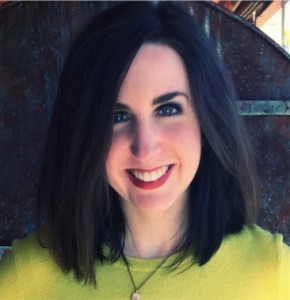- Calls to this hotline are currently being directed to Within Health, Fay or Eating Disorder Solutions
- Representatives are standing by 24/7 to help answer your questions
- All calls are confidential and HIPAA compliant
- There is no obligation or cost to call
- Eating Disorder Hope does not receive any commissions or fees dependent upon which provider you select
- Additional treatment providers are located on our directory or samhsa.gov
Being Honest with Yourself, Sharing Your Eating Disorder Secret with Others

Contributor: Courtney Howard, BA, writer for Eating Disorder Hope
There is a saying in recovery that you are only as sick as your secrets. Isolating, lying about disordered thoughts, or engaging in behaviors in secret are all products of the eating disorder. The best way to take power away from your disorder and truly recover is to be honest with yourself and your support team.
Reaching Out for Help
Though honesty is essential for recovery, this is easier said than done. The first time you admit to loved ones that you are struggling with an eating disorder might feel daunting, and this is okay. No one ever said it was easy, but there are things you can do to prepare and make the conversation as productive as possible.
Sharing with family members or friends that you have an eating disorder likely fills you with various emotions. You might be scared they will judge you, or you might be afraid they will be disappointed. You are also probably feeling at least a little ambiguous about your desire for recovery.
This is all normal. Just know that you are doing the right thing by reaching out for help. The longer you suffer in silence, the greater hold your eating disorder has on you.
Expert Recommendations
The National Eating Disorders Association (NEDA) has specific recommendations for speaking to a loved one about your eating disorder for the first time. These are classified as the “Three E’s of Expression.”
 The first “E” is “Establishing a Safe Environment.” If you do not feel safe, either with the person to whom you are disclosing or the environment, this makes you even more vulnerable. Establishing this safe space sets the tone for the entire conversation.
The first “E” is “Establishing a Safe Environment.” If you do not feel safe, either with the person to whom you are disclosing or the environment, this makes you even more vulnerable. Establishing this safe space sets the tone for the entire conversation.
The second “E” is “Explain the Situation.” This means that it is okay to tell your story from the beginning and explain why you feel the way you do. You might not be able to explain this fully, as you are probably not aware of many of the reasons your eating disorder developed in the first place.
You will explore this more in recovery. For now, talking about it in general terms can help you gain this awareness and encourage your loved ones to see things through your eyes instead of jumping to their own conclusions.
If you do not feel you are able to explain too much or go into detail, this is okay. Do not less this dissuade you from speaking your truth. Any form of reaching out for help can save your life.
The third and final “E” is “Educate with the Facts.” There are so many myths out there contributing to the stigma surrounding eating disorders that loved ones might be misinformed. Educating them, or at least pointing them toward resources that can be helpful, can empower them to cope with the situation and better support you.
Feel Your Feelings
 If you have struggled with an eating disorder, whether for two months or two decades, it can be very painful to come forward and admit your behaviors are out of control. Due to the nature of eating disorders, you might not be used to expressing how you feel or allowing yourself to feel much at all.
If you have struggled with an eating disorder, whether for two months or two decades, it can be very painful to come forward and admit your behaviors are out of control. Due to the nature of eating disorders, you might not be used to expressing how you feel or allowing yourself to feel much at all.
This can be the first step of your recovery process in letting yourself truly experience the rollercoaster of emotions that often comes with admitting you need help.
Feeling the rollercoaster includes the positive emotions that can come with starting the recovery process. Letting someone you trust in on your secret can often feel like a weight has been lifted. You might feel relief that you no longer carry this burden alone and that help is on its way.
Sharing Your Story In Recovery
Once you have sought treatment for your eating disorder, it might still feel shameful or like something you need to hide. In reality, coming forward about your past struggles can be empowering.
 If you decide to be more open about sharing your story, try to prepare yourself for potential triggers that can come with such open self-disclosure. The aforementioned eating disorder myths can cloud people’s perceptions of eating disorders, leading to stereotypes and assumptions. Instead of being angry or hurt, you can take this as an opportunity to educate loved ones on what eating disorders really are and increase awareness.
If you decide to be more open about sharing your story, try to prepare yourself for potential triggers that can come with such open self-disclosure. The aforementioned eating disorder myths can cloud people’s perceptions of eating disorders, leading to stereotypes and assumptions. Instead of being angry or hurt, you can take this as an opportunity to educate loved ones on what eating disorders really are and increase awareness.
Coming forward with your struggle is incredibly brave, though it might not feel that way right now. Regardless of how your journey unfolds, you can feel proud that you have made the decision to talk to someone about what you are going through.
Community Discussion – Share your thoughts here!
How was your eating disorder recovery impacted by sharing your struggle with others?
 About the Author: Courtney Howard is the Executive Assistant for Eating Disorder Hope and Addiction Hope. She graduated summa cum laude with a B.A. from San Diego State University, holds a paralegal certificate in Family Law, and is a Certified Domestic Violence Advocate. After obtaining her certification as a life coach, Courtney launched Lionheart Eating Disorder Recovery Coaching in 2015 and continues to be a passionate advocate for awareness and recovery.
About the Author: Courtney Howard is the Executive Assistant for Eating Disorder Hope and Addiction Hope. She graduated summa cum laude with a B.A. from San Diego State University, holds a paralegal certificate in Family Law, and is a Certified Domestic Violence Advocate. After obtaining her certification as a life coach, Courtney launched Lionheart Eating Disorder Recovery Coaching in 2015 and continues to be a passionate advocate for awareness and recovery.
The opinions and views of our guest contributors are shared to provide a broad perspective of eating disorders. These are not necessarily the views of Eating Disorder Hope, but an effort to offer discussion of various issues by different concerned individuals.
We at Eating Disorder Hope understand that eating disorders result from a combination of environmental and genetic factors. If you or a loved one are suffering from an eating disorder, please know that there is hope for you, and seek immediate professional help.
Last Updated & Reviewed By: Jacquelyn Ekern, MS, LPC on March 27, 2016
Published on EatingDisorderHope.com

The EatingDisorderHope.com editorial team comprises experienced writers, editors, and medical reviewers specializing in eating disorders, treatment, and mental and behavioral health.

